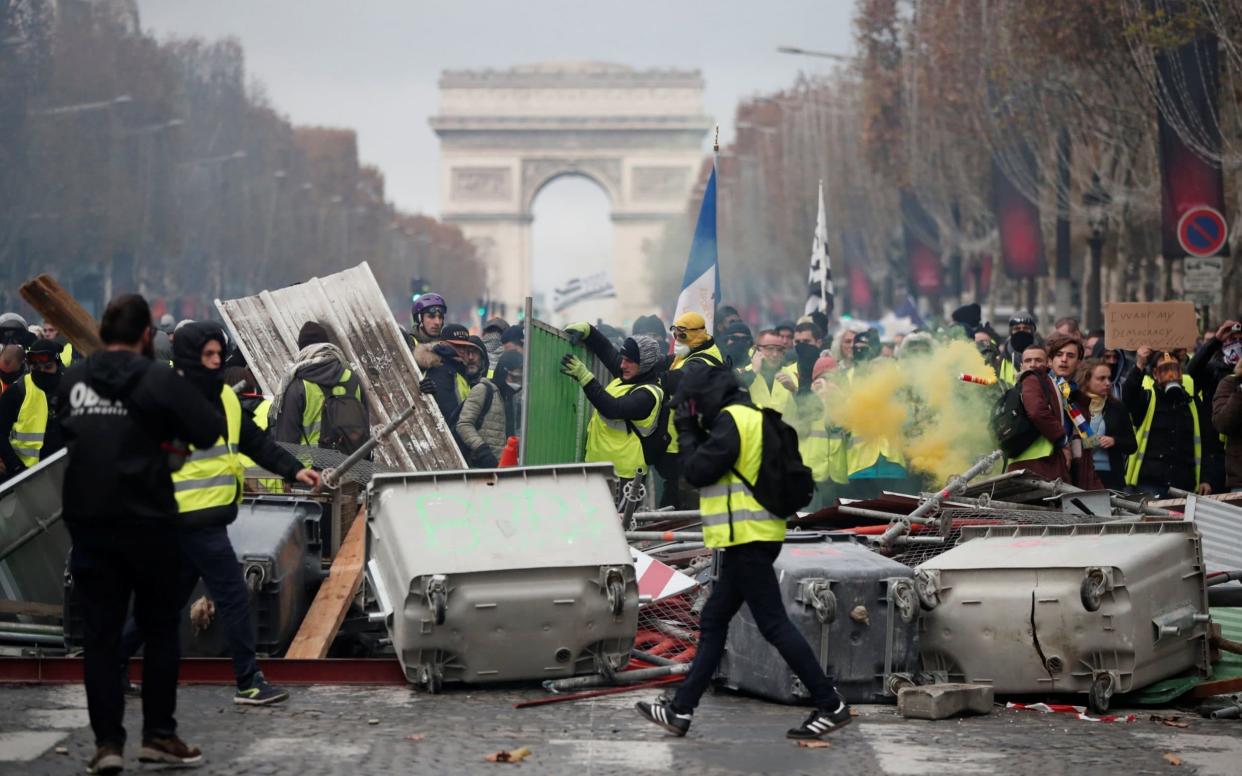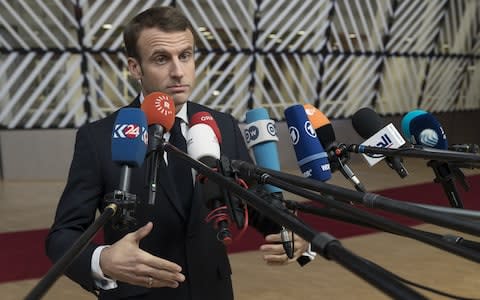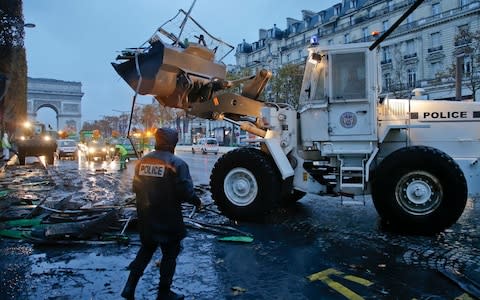Emmanuel Macron rejects parallels between French 'yellow vest' protests and Brexit

Emmanuel Macron on Sunday ruled out a parallel between the wave of popular discontent sweeping France and the dissatisfaction of Britons who voted for Brexit.
The French president was speaking on the sidelines of a summit of EU leaders in Brussels that rubber-stamped an agreement on the UK’s withdrawal.
He promised to respond to the grievances of French people on low incomes who took part in “yellow vest” protests against fuel tax rises, the high cost of living and what they say is a political elite disconnected from everyday reality.
Asked if there were parallels between the Brexit vote and the French protests, Mr Macron told reporters: “I don’t think the situation of all our countries can be compared… Brexit said a lot about the divisions and the very different positions between the City (of London) and the rest of the United Kingdom, between the young and older people."

"What that shows is that in all our democracies, it is clear that our duty is to succeed in giving back prospects, a capacity to build progress, to our popular classes and middle classes.”
The grassroots “yellow vest” protests, so-called because demonstrators wear high-visibility jackets, began as a fuel tax revolt but have since broadened into a more general movement against inequality. Its supporters say Mr Macron’s economic reforms favour the rich and penalise the poor.
More than 100,000 protesters took to the streets of France on Saturday. Several thousand demonstrators occupied the Champs-Elysées in Paris and set fire to barricades, smashed the windows of luxury shops and toppled traffic lights. Twenty-four people were injured, including five police officers, and 130 arrested.

The government blamed the violence on a minority of “ultra-Right casseurs", or troublemakers, and promised to heed the message from the streets.
More than a quarter of a million protesters blocked French roads the previous weekend.
Mr Macron, who is to address the nation tomorrow (on Tuesday), said the government would present “a clear response” amid speculation that he would offer compromises to soften the impact of fuel price hikes.
Donald Trump attacked France over the protests, complaining that they did not “take into account how badly the United States has been treated on Trade by the European Union or on fair and reasonable payments for our GREAT military protection.”
The US president has tweeted outspoken criticism of Mr Macron since he attended Armistice centenary commemorations in Paris on November 11.

